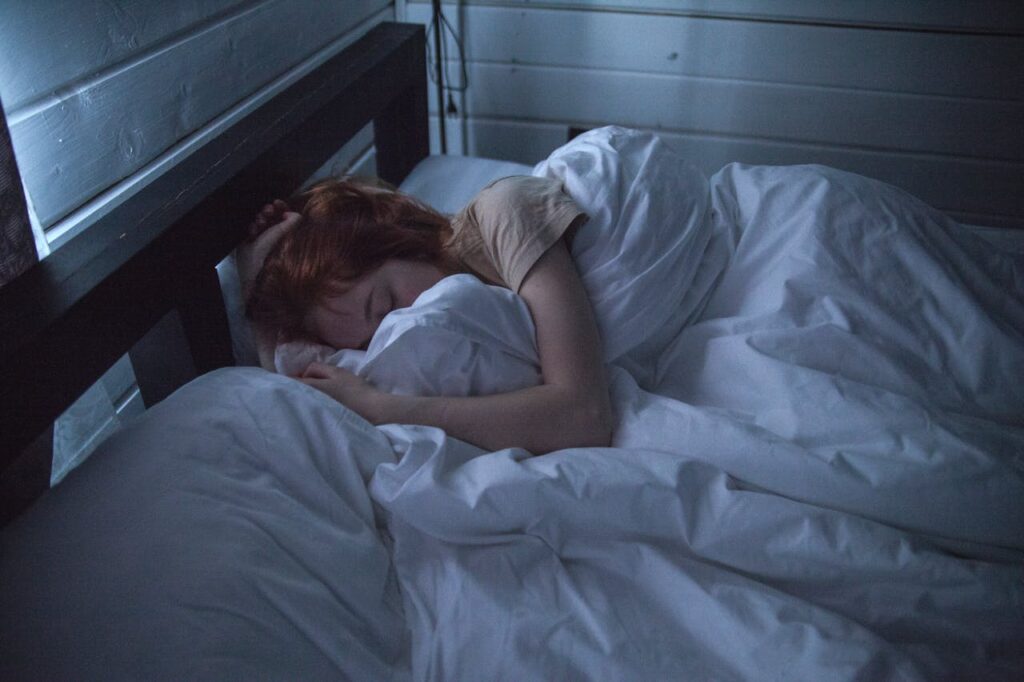You may not realize just how essential sleep is to being your best self. Picture this: you’re effortlessly handling everything, conversations flowing, and problems seem to solving themselves. Physically, you’re relaxed, fit, and everything just clicks. Now, you might notice how great it feels when you’re well-rested and start to see the crucial role sleep plays in this balance.
Stress tends to sneak in just as you’re trying to quiet your thoughts. Lying in bed, ready for sleep, stress might whisper, “Now seems like a great time to have a chat,” and suddenly, your mind races with questions like, “Did I check that? I shouldn’t have said it like that… I need to do…” Sound familiar?
It’s like every worry triggers a surge of dopamine, keeping your brain up and alert. But every part of your body is craving that chance to recharge, seeking the healing that comes from deep, regular sleep. Sleep isn’t a luxury—it’s absolutely necessary. Without it, your body’s natural functions start to break down. For example, the immune system depends on sleep to perform essential processes that keep us healthy. Over time, a lack of sleep contributes to issues like depression, anxiety, and even addiction. These conditions can also cause sleep problems, creating a vicious cycle.
We all miss sleep sometimes, whether it’s because of busy schedules or habits like late-night web surfing or consuming too much caffeine before bed. These habits can disrupt your sleep patterns, and I’m not here to judge, just to point out what’s affecting the rest your body deeply needs.
To change your sleep habits, start by understanding them. As you observe the link between your mental state and your sleep, you’ll see how addressing issues like stress or anxiety can naturally lead to better rest.
So, how would it feel if you directly addressed your insomnia? We know that sleep is often affected by medical conditions or stress. Working on these issues might make it easier to welcome sleep, but here are some techniques to help you drift into that healing rest.
Technique 1: Flip the Paradox
Try something counterintuitive: if you want to sleep, try staying awake. It sounds strange, but this paradoxical approach can help end sleeplessness. Instead of forcing sleep, which can feel like a battle, let it come naturally.
Imagine this: you’re lying awake, thoughts swirling around work or replaying conversations. The more you try to sleep, the harder it gets. Sleep is like a guest that needs to be gently invited, not forced.
If you’re awake after an hour, get up and spend 30 minutes in a dimly lit room doing something monotonous, like reading a simple book or working on a tedious hobby. Avoid screens—they interfere with sleep, not just because of the light but also due to the mental activity involved. After 30 minutes, return to bed. If you’re still awake after another hour, repeat the process.
In the first week, you might resist getting up, but eventually, this practice will help you naturally drift into sleep. The goal is to fail at staying awake, letting your subconscious mind choose sleep over boredom.
Technique 2: Sights, Sounds, & Feelings
While lying in bed, you can use this relaxation technique to focus on ‘three things.’ It’s about experiencing the calm of deep sleep while you’re still awake. Sleep is an active state where the brain shifts into different work.
Start by focusing on three things you can see in the dark without moving your head. Mentally note, “I can see the lamp,” “I can see the books on the dresser,” and so on. Then, focus on three things you can hear, like your breathing or distant traffic. Finally, notice three things you can feel, like the blanket against your skin or the pillow under your head.
Next, close your eyes and imagine three things you could see, hear, and feel—like a puppy curled up, the sound of the ocean, or the warmth of a hug. This creative visualization mirrors the brain’s natural process as you drift off, making it easier to fall asleep. With practice, you can control your thoughts, instead of letting them control you.
Technique 3: Basic Sleep Hygiene
Creating a foundation for better sleep isn’t just about what happens at night—it’s about how we live during the day. Here are some things you can do to enhance your sleep hygiene:
Get Outside in Natural Light: Exposure to natural light in the morning can set the stage for better sleep at night. Imagine your body naturally producing sleep-promoting hormones like melatonin earlier in the evening, just by spending time outside during the day.
Exercise Early: Morning exercise does more than energize your day—it also prepares you for the night. By getting moving early, you’re not only setting up a productive day but also helping your body produce melatonin at the right time. However, avoid intense evening workouts, as they can raise adrenaline and keep sleep at bay.
Cut Out Screen Time in the Evening: Reducing screen time before bed helps your brain wind down. Too much screen light tricks your body into thinking it’s still daytime, keeping you alert. Cutting down on screens an hour before bed can make a big difference.
Don’t Sleep in on the Weekend: While it’s tempting to sleep in after a long week, maintaining a regular sleep schedule is key. You don’t have to repay your sleep debt on weekends; instead, try to keep your routine consistent.
Limit Caffeine and Stimulants: Cutting back on caffeine and sugar, especially later in the day, can prevent those late-night energy spikes that disrupt sleep.
Ensure Your Bedroom is Dark Enough: A dark room helps sleep. Keep the lighting low—darker is better.
Wind Down: The benefits of a good wind-down routine can’t be overstated. Stop screen time an hour before bed and consider a warm bath to help prepare your body for sleep. Wearing socks in bed, though not glamorous, can also help achieve the right balance for sleep onset.
Final Thoughts
Sleep is not just a part of your routine; it’s the foundation of your well-being, supporting your body and mind. By incorporating these techniques, you can transform your nights and, in turn, your days. Sleep can become the trusted companion it’s meant to be, helping you navigate life with ease and grace.

